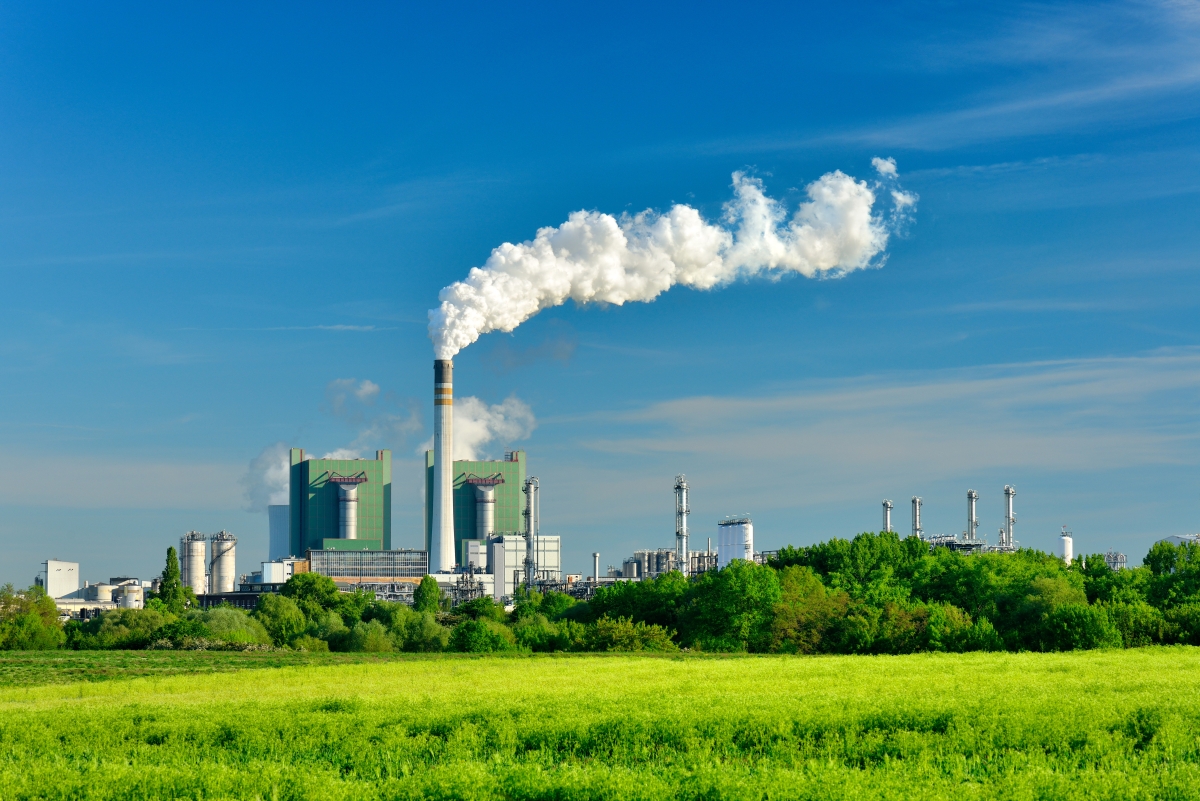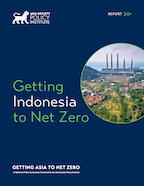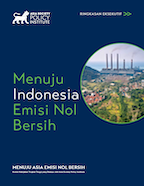Getting Indonesia to Net Zero

As one of the world’s fastest growing economies, Indonesia has committed to using its sustainable transition to drive green and inclusive growth. Recent steps taken by President Joko Widodo in the lead-up to Indonesia hosting the G20 summit in November 2022 underscore the country’s ambition to mitigate its emissions – including releasing a plan to achieve net zero emissions by 2060 or sooner, endorsing the Global Coal to Clean Power Transition Statement at COP26, and enhancing Indonesia’s Nationally Determined Contribution ahead of COP27.
The Getting Indonesia to Net Zero report from the High-level Policy Commission on Getting Asia to Net Zero explores how Indonesia can further accelerate its transition to a resilient, net zero emissions economy while benefitting its people and its place in the world. The report is based on new modeling commissioned from Cambridge Econometrics that shows the opportunities and trade-offs associated with different pathways for Indonesia to meet its current and more ambitious emissions reduction targets.
As the report’s analysis illustrates, implementing Indonesia’s current net zero strategy could boost Indonesia’s mid-term GDP by as much as 5% by 2032, create up to two million new jobs by 2039, and ultimately improve Indonesia’s trade balance by $48 billion. Moreover, by aiming for net zero emissions by 2050 instead of 2060 while prioritizing low-cost renewable energy sources like solar and wind, Indonesia could reduce its net zero investment needs by $3.8 trillion and peak its carbon emissions as early as 2027. In this latter scenario, the adverse impact of the net zero transition on household spending could also be cut by half.
The report also outlines a roadmap for how Indonesia could realize these and other benefits by prioritizing climate policies that concurrently address development challenges, reforming the energy market structure to favor solar and wind, and leveraging green industries to advance a just transition.


